If you’re a new artist looking to break into the industry and make a name for yourself, it’s super important to know how good your music really is.
It needs to really stand out and outshine your competition, resonate with your audience, and meet industry standards.
That’s why in today’s article, we’re breaking down everything you need to know to determine if your song is whack or ready to go, like:
- Self-evaluation techniques (for all genres) ✓
- The power of fresh ears ✓
- Comparing to industry standards ✓
- Getting feedback/the mass opinion ✓
- Analyzing digital engagement metrics ✓
- Taking advantage of professional insights ✓
- Evaluating sound and production quality ✓
- Assessing your lyrics and melodies when you write music ✓
- Ensuring your song will resonance with listeners around the world ✓
- Much more to help you learn how to know if your music is good ✓
After this article, you’ll know exactly how to critique your music like a professional and have access to new tips and techniques to help you do so.
All without having to guess or wonder if you’re on the right track.
Plus your tracks will always be polished and competitive 一 ensuring you reach a wider audience and make a lasting impression.
So, let’s dive in…
Table of Contents
How to Know if Your Music is Good: Self-Evaluation Techniques
Assessing the quality of your music starts with understanding your sound and being honest with yourself about its strengths and weaknesses. Yes, regardless of how hard that might be. Let’s kick things off with the best self-evaluation techniques to see if you’re on the right track.
-
The Power of Fresh Ears To Check for Quality

One of the very best ways to evaluate your music is to listen with fresh ears; I know it sounds super simple, but it can make the biggest difference in your musical life.
Take breaks between sessions no matter what to avoid ear fatigue, which can skew your perception of your track’s quality.
Listening in different environments (like your car or on various headphones) helps you notice details you might miss in your studio.
Pay attention to the overall mix and balance of your song 一 making sure nothing sounds off or too dominant.
Make sure to compare your track to a professionally produced song in the same genre to see if it holds up.
Listen for clarity, separation of instruments, and cohesion, making sure to listen objectively, which will lead to better decision-making.
-
Comparing Your Own Music to Industry Standards

Comparing your music to industry standards is the key for learning how to know if your music is good, seeing if it measures up.
Select tracks from top artists in your genre and analyze their production quality, lyrical content, and overall arrangement.
When you write songs, focus on elements like:
- Beat
- Quality
- Flow
- Sing style
- Blend of instruments
- Etc.
For example, if you’re producing hip-hop, listen to how artists like Kendrick Lamar or Travis Scott structure their songs and use effects.
Take note of the clarity and punch in their tracks, ensuring your mix achieves a similar impact and helping to reveal areas where it needs some improvement.
But don’t just mimic…
Make sure to learn and apply these insights to elevate your own work because understanding what makes a song commercially successful is everything.
It can help guide your creative process and enhance your tracks in the future.
This step helps ensure your music sounds good enough to compete in the industry, so don’t overlook it.
NOTE: Remember, matching industry quality is essential if you want your tracks to stand out and be taken seriously by listeners and professionals alike.
-
Getting Feedback from Online Music Communities

Online music communities are a goldmine for honest feedback.
Platforms like SoundCloud, Reddit, and Bandcamp allow you to share your tracks with a wide audience (which can, FYI, lead to some pretty dope opportunities if done correctly).
For example, posting your hip-hop tracks on subreddits like r/HipHopHeads or r/WeAreTheMusicMakers can offer valuable critiques from fellow artists and producers.
Make sure to actively engage by providing feedback to others, which can help you understand common pitfalls and strengths in your own music.
SoundCloud groups and Discord servers dedicated to music production and songwriting can also provide targeted advice.
Be open to constructive criticism and use it to refine your music.
Listening to other new artists’ tracks and providing feedback can also help you improve your own music, especially in the last few years.
Remember, everyone starts somewhere, and these communities can be incredibly supportive, insightful, and point out things you might not think of.
Plus, what you should expect throughout the entire song-making process in general.
Use the feedback to identify trends in what people enjoy and what they think needs improvement, etc.
-
Digital Engagement Metrics
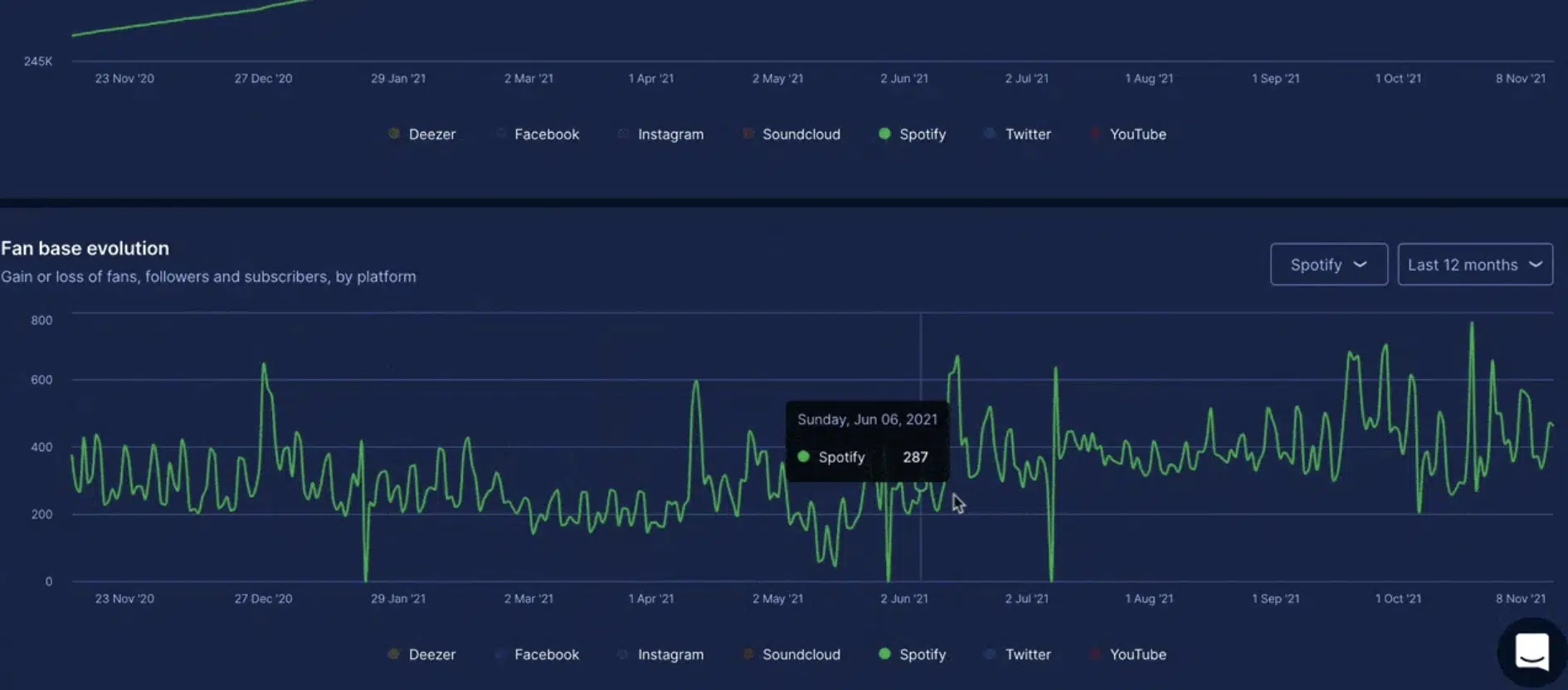
Analyzing digital engagement metrics is a great way to help determine if your music is appealing or overlooked.
Platforms like Spotify, YouTube, and Instagram provide data on:
- Likes
- Plays
- Shares
- Comments
- Downloads
High engagement obviously indicates that your song resonates with listeners and if you’re getting a whole bunch of negative comments, you might need to reevaluate.
For example, if your track receives a high number of plays and positive comments shortly after release, it suggests that your song is striking a chord with your audience.
Pay attention to trends in your metrics, such as spikes in plays or increased interaction after a release.
Make sure to use different analytics tools to track these metrics and understand your audience’s behavior.
If a particular track (or type of track your release) gains more traction, check out what sets it apart.
NOTE: Engagement metrics help you identify what works and what doesn’t. This data-driven approach can guide your future projects and marketing strategies.
Bottom line, knowing how to interpret these numbers can tell you if you’re on the right track and making music that resonates with your audience.
How to Know if Your Music is Good: Professional Insight
Getting some professional insight can provide a deeper understanding of your music’s strengths and weaknesses. Let’s break down some ways to get expert feedback and make sure your music stands out.
-
Getting Advice from A&R and Music Critics
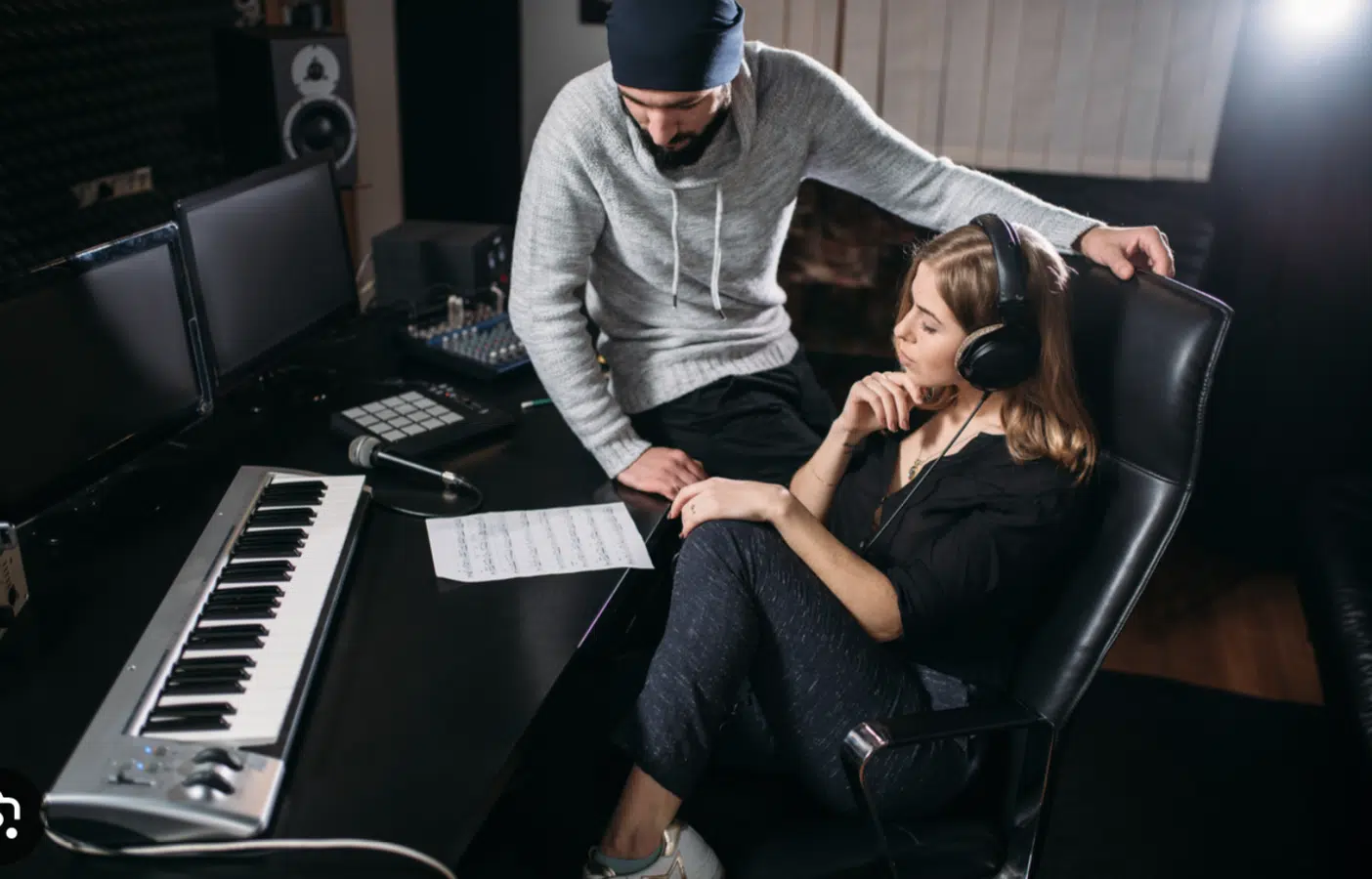
A&R representatives and music critics offer valuable views on your music.
Their feedback is often based on extensive industry experience and understanding of market trends (just know that they usually require a pretty penny).
Approach A&R reps by attending industry events, networking, or submitting your music through official channels.
Music critics, on the other hand, provide detailed reviews that highlight both strengths and areas for improvement.
Make sure to target critics who specialize in your genre for the most relevant advice.
Professional feedback can significantly elevate your music 一 helping you create great songs that stand out in a crowded market.
-
Sound and Production Quality
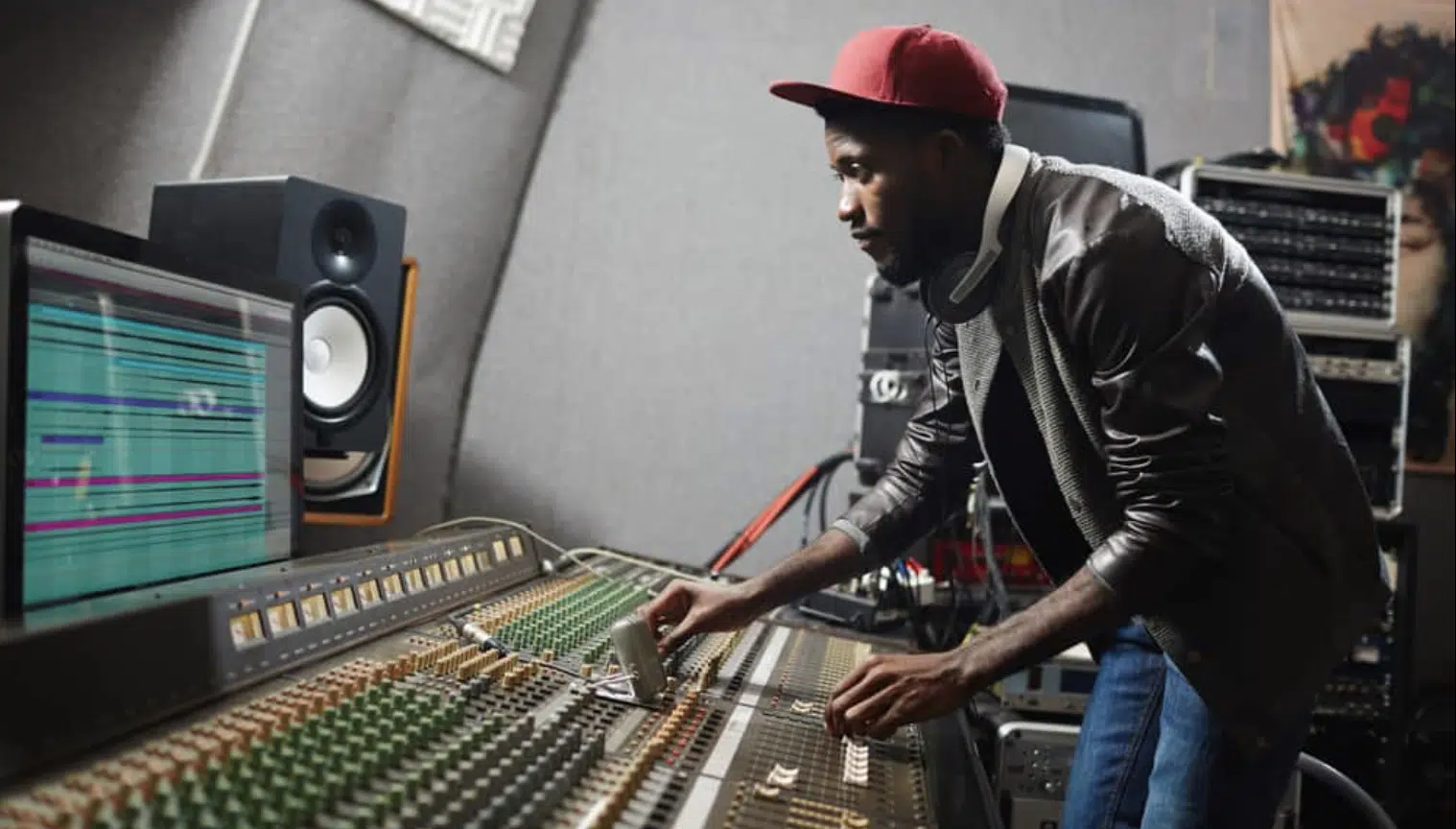
Sound and production quality are fundamental to how your music is perceived, hands down.
A professional mix and master can make the difference between a good song and a great song, ensuring that your track has:
- Clarity
- Balance
- Punch
- Each instrument sitting well in the mix
Make sure to use reference tracks to compare your mix against industry standards.
For example, listen to tracks by artists like Kendrick Lamar or Billie Eilish and pay attention to how their songs sound on different speakers and headphones.
Common pitfalls in DIY production include muddy mixes, weak bass, and harsh highs.
Investing in good quality plugins and learning advanced production techniques can elevate your sound and don’t hesitate to get feedback from experienced producers or engineers.
It can help you identify and fix any production flaws.
Ultimately, a polished production makes your music more appealing and competitive.
-
Lyric and Melody Strength

The strength of your lyrics and melodies plays a super important role in the overall impact of your music (and not to mention, lead to some serious money).
Lyrics should be engaging, relatable, and get your message across clearly.
For example, Drake’s storytelling/words or Billie Eilish’s emotional depth and melodies can be great sources of inspiration.
Avoid clichés and aim for originality in your storytelling…
Your melodies need to be catchy and memorable 一 complementing the lyrics and enhancing the song’s emotional impact.
Study successful songs in your genre to understand what makes their melodies and lyrics stand out (and think about what stands out to you).
For instance, analyze the lyrical depth and melodic hooks in tracks by artists like Drake or Billie Eilish.
Experiment with different writing techniques and structures to find what works best for your style.
Collaborating with other songwriters can also bring new perspectives or a great new musical idea.
NOTE: Great songs often come from a place of honesty and personal experience and continually refining your lyrics and melodies will help you create music that resonates deeply with listeners.
-
Make Sure Your Getting Good Reactions
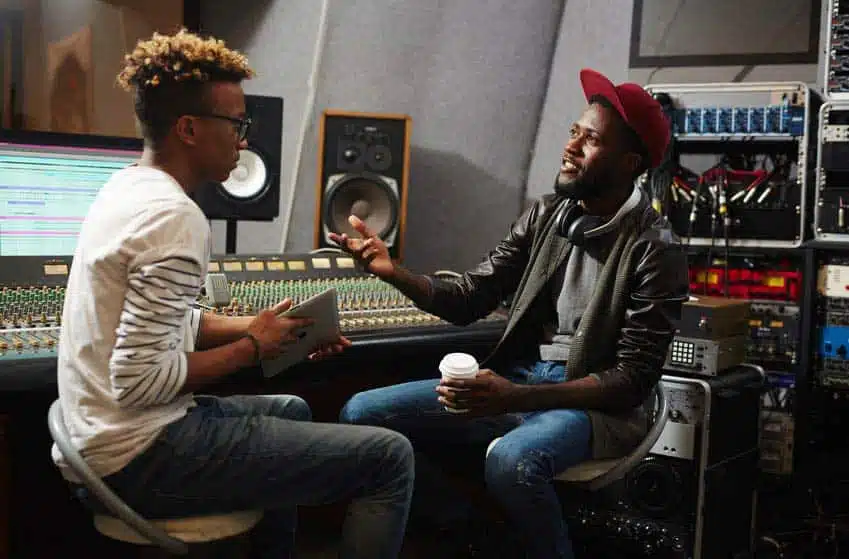
Music’s emotional impact on listeners is a true indicator of its quality, so always aim to evoke specific emotions through your:
- Unique lyrics
- Show-stopping melodies
- Proper production choices
Pay attention to how people react to your music, both in live settings and through digital interactions, and if they feel connected to your song, you’re on the right track.
Gather feedback on the emotional impact of your tracks from friends, fans, and online communities.
For example, if a particular song consistently gets comments about how it made someone feel, take note of what elements of that track are resonating.
This feedback can guide you in creating songs that leave people no choice but to stop and listen.
Remember, good music leaves a lasting impression on its audience, so strive to create music that not only sounds good but also moves people emotionally (a specific purpose/emotion is always advised).
11 Bonus Tips & Tricks To See If Your Music Is Good

Evaluating your music goes beyond the basics… sometimes, the little tips and tricks can make a huge difference.
So, to round things off, here are some bonus tips to learn how to know if your music is good:
1. Perform Your Music Live
Playing your music live on different social media sites is an excellent way to check out its impact. Use live instruments if possible, and pay attention to how the audience reacts. This immediate feedback is invaluable and you can get it from around the world.
2. Recording Yourself Playing
When you record yourself playing or singing, listen back critically. Sometimes, things sound different when you’re not in the moment of creating music. This can help you catch mistakes or areas that need improvement.
3. Get Feedback from Other Artists/Musicians
Some other artists or musicians will have a trained ear for quality. Ask musicians that you have access to to listen to your tracks and provide detailed feedback. They might hear things others miss because they make music too.
4. Analyze Super Successful Songs
Study the structure and elements of great music in your genre. Understand why certain songs resonate more with audiences and try to incorporate those elements into your own music. This can elevate your song-writing and overall sound.
5. Use Different Recording Techniques
Experiment with various recording techniques to find what best captures your sound. Sometimes a new method can bring out the best in your tracks.
6. Evaluate the Song-Writing Quality
Strong song-writing and arrangement (especially when it comes to tension and release) is the backbone of good music. Focus on writing music that tells a story or conveys an emotion instantly when it’s heard.
7. Collaborate with Others
Creating music with other artists can bring new ideas and perspectives to your work. Collaboration often leads to doper, more polished songs most people will love. It’s a great way to learn and grow as a musician with every song.
8. Test on Multiple Devices
Play your music on different devices and speakers (this is especially useful for new artists). This can reveal issues in your mix that you might not hear in your studio. Ensuring your tracks sound good everywhere is key to making music that reaches more people.
9. Take Breaks and Revisit
Give your ears a rest and revisit your tracks after some time. Fresh ears can offer a new perspective and help you catch things you missed initially. It’s the way a good song can turn into a legendary, super popular song.
10. Trust Your Instincts
Finally, trust your artistic merit and instincts. If something feels right, it probably is. On the flip side, if something feels off, don’t ignore that feeling and make sure to play around until it fits your unique vision.
11. Seek Feedback from Different Audiences
When you write music, it’s super important to share your music with people outside your friends/usual circle. Different audiences can provide diverse insights that can be incredibly useful.
Play around with all of these tips and tricks to refine your process of writing music and ensure you’re on the right track to making great music.
Whether it’s your first song or your latest track, they’ll help you assess and improve your music’s quality 一 making sure it stands out in the industry.
How to know if Your Music is Good: Final Thoughts

Determining if your music is good enough can be a challenging process, hands down, but with the right techniques and mindset, you can ensure your tracks stand out.
By using self-evaluation methods, getting feedback from online communities, analyzing digital engagement metrics, and listening to professional insights, you’ll be A-OK.
Remember, evaluating sound and production quality, focusing on lyrical and melodic strength, and ensuring emotional resonance with listeners are key steps.
For those looking to take their music to the next level, check out the legendary Free Vocal Samples (which will blow your mind).
These 20 free vocal loops, chops, and MIDI files can add the missing piece to your music and really take it to the next level.
If you’re looking to make your tracks professional and catchy, then look no further.
Plus they were all created by expert vocalists and producers, so you’ll be getting industry-standard sounds that are sure to impress.
Always remember to hustle, improve, and grow as an artist.
If you keep pushing your boundaries and refining your craft, your music will continue to evolve and resonate with more listeners which is everything.
Until next time…






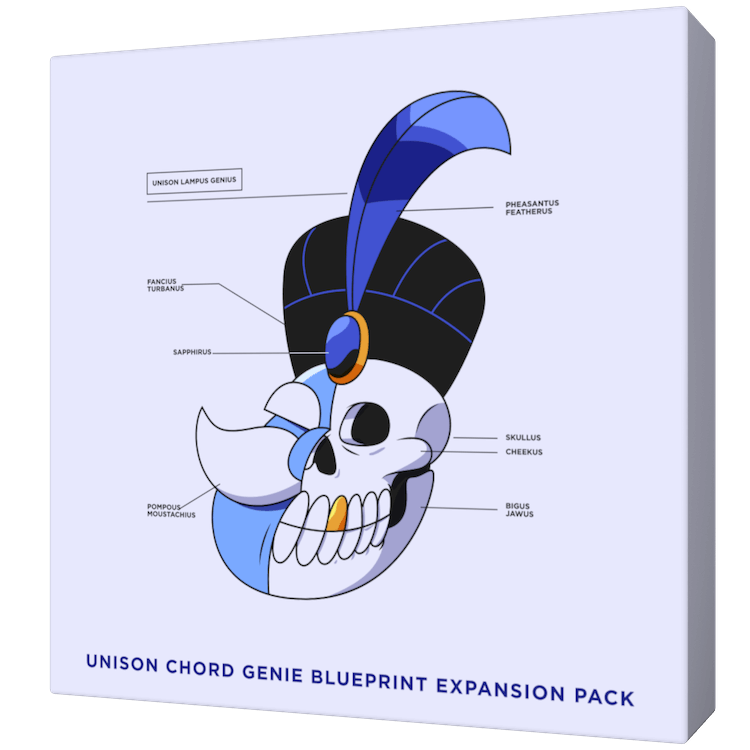
Leave a Reply
You must belogged in to post a comment.